
The AIgorythm project

Playwright and actor
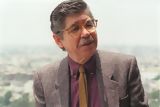
Novelist

Writer and poet

Volleyball player

Italian-Peruvian naturalist and geographer

Singer and percussionist

Last Inca emperor

Politician, former prime Minister

Journalist and TV host
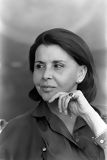
Poet

Inca warrior
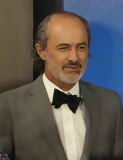
Actor and comedian

Biophysicist

Poet

Doctor and researcher

Businessman, Interbank group

Journalist and writer
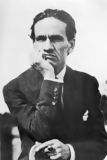
Poet and writer
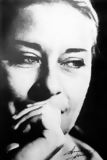
Singer and songwriter
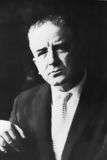
Writer

Film director, Berlin Golden Bear winner

Football player
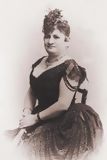
Writer and journalist
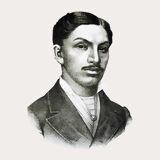
Doctor and scientist

Photograph

Chess player

Industrialist
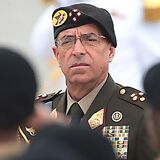
Former general

Specialist in public health

Actress and singer
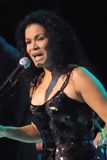
Afro-Peruvian music singer

Mathematician and engineer

Indigenous chronicler

Neurologist and anthropologist

Painter

Football player
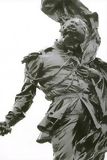
National hero, military leader

Intellectual and reformer

Chef and entrepreneur

Fashion designer

Singer-songwriter

TV presenter

Marathon runner

Indigenous Peruvian chronicler

Theologian

Former national team captain

Economist and former health minister

Inca princess

Writer and television host

Folk musician

Poet and guerrilla
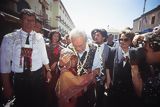
Former UN secretary-general

Chef, known for fusion cuisine

Football player

Peruvian aviation pioneer

Poet and artist
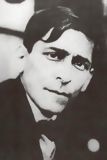
Marxist philosopher and writer

Industrialist and businessman
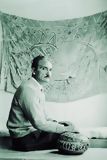
Novelist and ethnologist

Painter and muralist

Opera tenor

Fashion designer

Cardinal of Lima

Peruvian tennis player

Football coach

Leader of the indigenous rebellion
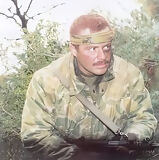
Military hero

Latin singer
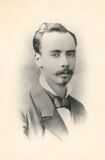
War of the Pacific hero

The youngest mother in history

Politician
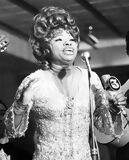
Creole music singer

Tennis player
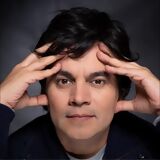
Musician

Writer and politician

Politician and founder of the Christian Democratic Party

Founder of Sodalitium Christianae Vitae

Archaeologist and anthropologist
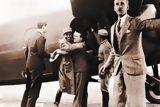
Military leader and politician

Television host
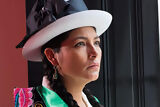
Actress and singer
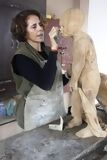
Contemporary sculptor
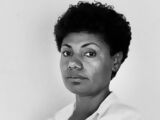
Women’s rights activist

Beauty queen

Astrophysicist

Heroine of independence
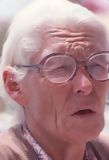
Mathematician and archaeologist

Historian and anthropologist
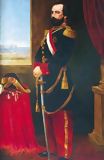
Military figure and historical figure
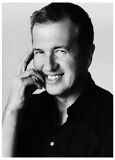
Fashion photographer
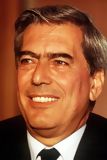
Writer, Nobel Prize in Literature, Politician

Revolutionary leader
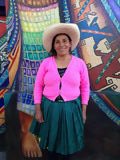
Environmental activist

Leader of the indigenous rebellion

Musician from Gaia band
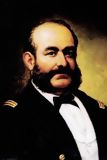
War hero
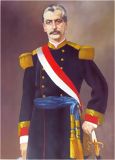
Military leader and politician

Chef, known for Nikkei cuisine

Volleyball coach and former player

Environmental activist

Television personality

Writer
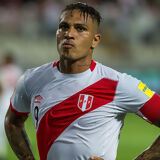
Football player

Epidemiologist and former health Minister

Inventor and aerospace pioneer

Soldier and inventor
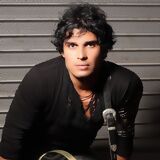
Rock singer

Chef and co-owner of Central restaurant

Painter

Football player

TV presenter and actress
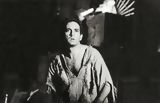
Actor
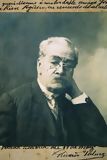
Writer and historian

Journalist and lawyer

Archaeologist, founder of Caral site
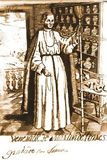
Monk and Saint
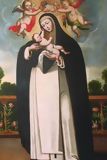
Saint, patron of Latin America

Physicist and engineer

World champion surfer

Actress

Oncologist
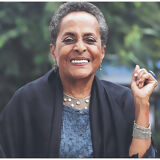
Singer, Latin Grammy winner

Former mayor of Lima

Singer

Actress

Former football player

Painter
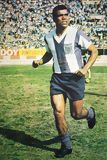
Former football player

Painter

Inca leader

Archbishop, saint
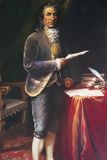
Leader of the indigenous rebellion

Revolutionary indigenous leader

Diplomat and intellectual

Sculptor and painter
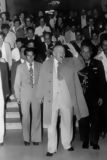
Political leader, founder of APRA

Lawyer and Former prime minister

Chef of Central restaurant
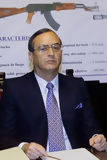
Former head of secret services

Popular singer

Fashion designer

Exotic music singer
Javier Heraud Pérez was a Peruvian poet and guerrilla fighter whose life and work left an indelible mark on the literary and political history of Peru. Born on January 19, 1942, in the district of Miraflores, Lima, to a middle-class family, Heraud showed a deep interest in literature and poetry from an early age, which led him to become one of the most promising voices of his generation. However, his life was tragically cut short when he was killed at the age of 21 in a military confrontation in the Peruvian jungle while attempting to lead an armed revolution.
Javier Heraud grew up in an intellectually and culturally privileged environment, which contributed to his early development as a poet. He studied at the Markham College in Lima, where he began writing his first poems and meeting other young writers and artists who shared his concerns. At the age of 19, Heraud entered the Catholic University of Peru to study Literature and later attended the National University of San Marcos, where he also pursued studies in Education. During this time, his poetic output flourished, and it was during these university years that he began writing some of the poems that would establish him as a significant figure on the Peruvian literary scene.
Alongside his career as a poet, Heraud became deeply interested in politics and social causes. In the 1960s, Peru was undergoing a period of great social and political tension, marked by poverty, inequality, and the growing influence of revolutionary ideas across Latin America. It was in this context that Javier Heraud began to radicalize politically, influenced by figures such as Fidel Castro and Che Guevara. In 1960, at just 18 years old, Heraud joined a group of young poets and activists who believed in the need for radical transformation in the country.
Javier Heraud's poetic work is marked by deep social and political sensitivity, as well as a strong connection to nature. His first book, "El río" ("The River"), published in 1960, demonstrates his ability to combine natural imagery with deep reflections on life and death. In his poetry, the river emerges as a metaphor for life, constant change, and the inevitability of death. Other recurring themes in his work are freedom, the struggle for justice, and personal sacrifice.
Heraud's style is often simple and direct but imbued with emotional intensity, reflecting his commitment to the causes he defended. Some of his best-known works include "El viaje" ("The Journey," 1961) and "Poemas de guerra" ("War Poems," 1962), in which he expresses his belief that poetry can also be a weapon in the fight for a more just world.
In 1962, after traveling to Paris and Cuba, where he had direct contact with the revolutionary movements of the time, Javier Heraud decided to join the Movimiento de Izquierda Revolucionaria (MIR, Revolutionary Left Movement). Convinced that political change in Peru could not be achieved through peaceful means, Heraud opted for armed struggle. Along with a small group of guerrilla fighters, he entered the Peruvian jungle with the goal of forming a revolutionary base that would spark an insurrection in the country. However, the lack of military preparation and the overwhelming strength of the Peruvian state forces quickly ended their incursion.
On May 15, 1963, Javier Heraud was killed at the age of 21 in Puerto Maldonado, in the jungle of Madre de Dios. His death occurred during a confrontation with government forces while attempting to escape in a canoe across the Madre de Dios River. Heraud was struck by a burst of gunfire and fell into the river, where his body was later recovered. His death shocked the intellectual and political world of Peru, and he quickly became a mythologized figure as a martyr for both revolution and poetry.
Despite his short life, Javier Heraud's legacy has endured through both his poetry and his political commitment. For many, Heraud represents youthful idealism, the conviction that it is possible to change the world through words and action. His poems continue to be read and studied in schools and universities across Peru, and his life has inspired generations of young people committed to the fight for social justice.
Today, his figure is remembered with respect and admiration. Various cultural and literary events in Peru celebrate his work, and his name has been claimed multiple times as a symbol of resistance. Furthermore, his family and friends have kept his legacy alive through posthumous publications of his work and the promotion of his memory in various spaces.
Javier Heraud's impact on Peruvian culture goes beyond his poetry. His life and death have been the subject of numerous books, articles, and even a film titled "La pasión de Javier" ("The Passion of Javier," 2019), which depicts his life from his youth to his death in the jungle. This film has helped revive interest in his figure and his work among new generations of Peruvians.
Additionally, several streets, schools, and libraries in Peru bear his name in honor of his sacrifice and his contributions to both literature and the country's politics. Javier Heraud is one of those figures whose brief but intense life continues to resonate in Peru's collective consciousness.
Javier Heraud lived only 21 years, but in that short time, he managed to leave an indelible mark on the literature and political history of Peru. His poetry, filled with passion, justice, and a deep connection to nature, remains a testament to his worldview. Moreover, his decision to take up arms to defend his ideals, though tragic, reflects the spirit of an era in which many young people believed that change was both possible and necessary. Through his work and his legacy, Javier Heraud lives on in the memory of those who continue to fight for a more just and free world.